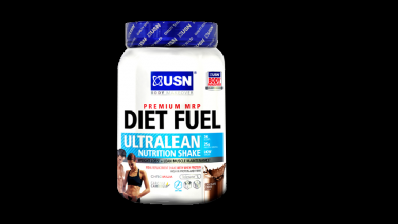German supplement users are not ‘OD-ing’ on minerals: National survey

The data, published in the journal Food and Nutrition Sciences, suggested that overall this use was not taking the normal population over recommended nutrient limits, but pointed to risk groups where high mineral intake occurred via normal foods.
The survey, conducted by the Association for Consumer Research (GfK), looked at data regarding 1070 supplement users (40.8% men, 59.2% women) aged 18-93.
The researchers from Leibniz University in Germany and company Medizin & Service found that supplement use in 143 cases increased the likelihood of intakes above the tolerable upper intake limits (UL) for magnesium alone.
“The estimated intake of high doses was observed only in individual cases for magnesium, calcium and zinc. However, in the case of magnesium, the recommended maximum amount for food supplements was more frequently exceeded,” they wrote.
Multiple use, meaning intakes via different supplement products, was noted as significantly more prevalent for men than women but this not a widespread issue.
The most frequently consumed minerals were magnesium, calcium, selenium and zinc.
On the European agenda
Consumption of supplements in European member states ranged between 17.9% and 60% of the population.
“In the last few years, the use of food supplements has been controversially discussed in view of expected benefits versus possible risks. There is certain evidence that excessive intake of specific nutrients can cause adverse effects. Based on this background, maximum intake levels have been established for most vitamins and minerals.”
In 2006 the European Commission began work on setting pan-EU ULs for vitamins and minerals, but the plans have been on hold since 2009 leading some states like Norway, not an EU member state but within the EU internal market, to readdress existing guidelines themselves.
While the survey revealed that in Germany the combination of mineral intakes from the diet and food supplements did not pose an overall risk of overdose, they concluded: “Even if only few cases were dangerously affected, there was a need for professional advice regarding a rational choice of food supplements and for setting EU-wide maximum levels.”
Dr Andreas Hahn, one of the researchers behind the paper, told us maximum amounts for vitamins and minerals in food supplements as foreseen by article 4 of the 2002 Food Supplements Directive (FSD) would be "desirable but should be established with a sense of proportion".
Overs 50s on pills
The report also noted that supplement use increased with age, with 70.7% and 54.3% of men and women taking part in the survey over the age of 50 being supplement users.
This gender breakdown differed from surveys in Denmark, England and Canada, which found women to be the most common supplement users in the over 50s group.
Overall, approximately 69% of the participants consumed only one supplement. They found men were more likely to use multiple products than women. This was in contrast with previous research that suggested older women were the most likely to do this. Yet they warned that these discrepancies could be due to their decision to exclude drugs containing calcium and vitamin D used by women for osteoporosis prophylaxis, unlike the previous studies.
“In this context, elderly subjects using several supplements are possibly a population at high risk for exceeding ULs. Furthermore, from the fact that, overall, most supplements were consumed daily (61.3%), throughout the year (71.3%) and for at least one year (56.1%), consistently high levels of mineral intake from supplements are to be considered for specific subgroups.”
Source: Food and Nutrition Sciences
Vol.6 Iss.2, pp. 205-215, doi: 10.4236/fns.2015.62021
“Intake of Minerals from Food Supplements in a German Population—A Nationwide Survey”
Authors: J. Willers, M. Heinemann, N. Bitterlich and A. Hahn















